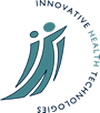Transitions In HIV Management: The Role Of Innovative Health Technologies
Abstract
Aims
To describe the impact of IHTs upon the management of HIV from the perspectives of HIV positive people, service providers and specialist and general media
Methods
Ethnography and in-depth interviews with HIV positive people (n=80) and service providers (n=20) recruited from two socially and geographically distinct settings in conjunction with a literature review and discourse analysis.
Research Questions
How do IHTs affect clinical expertise and the illness experience? How are IHTs embedded within the social organisation of HIV care? What are the roles of IHTs in shaping understandings of identity, the body, risk management and treatment adherence? How does the presentation of IHTs differ from lived experience?
Summary
Background
The recent treatment innovation of highly active anti-retroviral therapy (HAART) for HIV disease has been responsible for dramatic reductions in HIV and AIDS deaths in the USA and UK. Alongside these new treatments there are other innovative health technologies (IHTs) in the form of blood tests for viral load, and those that assess viral resistance to drugs and measure drug concentration levels. This has had major consequences for HIV positive people, bringing renewed hope, and a contingent health restoration. This has changed the nature of AIDS from being a singular acute, life-threatening disease to a chronic condition requiring long-term management and creating new public health threats in the form of new HIV infections of multi-drug resistant virus. It has resulted in the fragmentation of the HIV positive identity and the privatisation of many HIV risks.
Research Design
The pace of HIV IHTs development and their rapid adoption require interrogation through primarily exploratory and critical research perspectives. This research will undertake a comparative analysis of the management of HIV IHTs in two cities (London, Glasgow) and in a range of health service and non-governmental organisations. Following a period of literature review and media analysis (addressing both the construction of IHTs in HIV management and the efficacy and utility of IHTs in HIV management) the research will employ an interview based ethnography of HIV IHT management across the two settings. Fifty people will be recruited from each city for depth interviews (40 people living with HIV, and 10 key service providers) (n=100).
Policy and Academic Implications
The research will focus upon transitions within HIV management: in bodies of knowledge, embodiment, identity, risk management, roles and responsibility. We investigate these transitions at both the level of the individual and in terms of the social organisation of HIV IHTs (in terms of HIV services and media representations). The study will also contribute to our understanding of the transformation of the meanings of illness and health as HIV management becomes increasingly medicalised and new risks associated with medical intervention (e.g. side effects and drug resistant virus) proliferate.
By exploring the differing ways HIV IHTs are used and understood (between positive people and their carers) and how these understandings are incorporated into HIV positive people's lives, the project will impact upon the medical and social care of people living with HIV. It also seeks to enhance HIV IHT communication through dissemination in a variety of contexts (clinical consultation, educational resource development, examples of good practice).
Contacts
Outputs
Papers
Davis, M., Frankis, J. and Flowers, P. (2006) Uncertainty and 'technological horizon' in qualitative interviews about HIV treatment. Health, 10, 323-344
Flowers, P., Davis, M., Hart, G., Rosengarten, M., Frankis, J. and Imrie, J. (2006) Diagnosis and stigma and Identity amongst HIV positive Black Africans living in the UK. Psychology and Health, 21, 109-122
Rosengarten, M., Imrie, J., Flowers, P., Davis, M. and Hart, G. (2004) After the euphoria: HIV medical technologies from the perspective of clinicians. The Sociology of Health and Illness, 26, 575-596
Ward, K., Davis, M. and Flowers, P. (2006) Patient Expertise and Innovative Health Technologies. In Webster, A. (Ed). New Technologies in Health Care: Challenge, change and innovation. Palgrave Macmillan. London.
'The measure of HIV as a matter of bioethics' in Rethinking Feminist Bioethics: The Challenge of the Postmodern edited by Margrit Shildrick and Roxanne Mykitiuk (in press with MIT).
'The transformative capacities of HIV for poststructural feminist theory' (In Review) Special Issue of Feminist Theory edited by Susan Squiers.
Conference Papers
Rosengarten, M. (Oral) Irony and Paradox in HIV Containment. Social Studies of Science Society. 2001, MIT Boston, USA
News
Marsha Rosengarten's IHT Travel Fellowship report is available here - pdf

